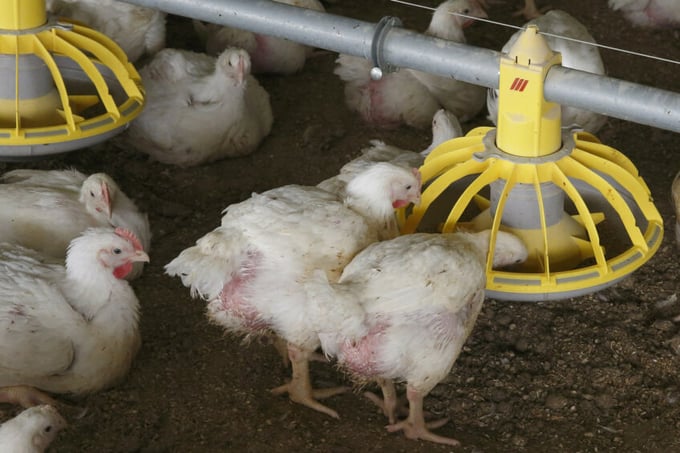May 18, 2025 | 23:55 GMT +7
May 18, 2025 | 23:55 GMT +7
Hotline: 0913.378.918
May 18, 2025 | 23:55 GMT +7
Hotline: 0913.378.918

So far, disease approach has often been relatively ad hoc in France. Photo: Hans Prinsen.
The plan was put forward by Annie Genevard, France’s minister of agriculture, food sovereignty and forestry. In recent years, the country has faced various viral outbreaks in poultry, cattle and sheep, and geographically speaking, African Swine Fever (ASF) is just around the corner.
Contracts with major livestock unions
The minister’s idea is to arrange contracts with the major livestock unions to agree on who takes care of what, who pays what and when and who does the actual work in the field in case of a disease outbreak. Important elements are a strengthening of farm surveillance and biosecurity, the organisation of preventive vaccination as well as the evaluation of new innovative solutions.
“By fixing those steps together in advance, the country as a whole can fight current epidemics more efficiently and rapidly, but also prevent new threats,” she said, adding, “I know I can count on all players involved to construct an ambitious and resilient animal health system together. The epidemics don’t know borders; we have to build an innovative French system and at the same time extend this strategic approach to the whole of the European Union.”
Animal disease approach a bit ad hoc
So far, disease approach has often been relatively ad hoc in France. Often, as soon as a new disease appears, the authorities first tend to observe the situation and then decide to order large amounts of vaccines for a vaccination campaign. Questions as to who has to carry out the vaccinations and how it will be organised are often left unanswered. As a result, fighting disease often costs hundreds of millions of euros.
Genevard said, “We have to engage collectively in defining the sanitary organisation of tomorrow, adjusted to the new risks our livestock is exposed to, against the background of climate change and intensification of worldwide trade.”
She continued to say, “2025 could well be a year of unprecedented perils, with a prolongation of the crises we’ve seen in 2024 and the emergence of new diseases which are already present in neighbouring countries, like African Swine Fever in Germany, or which could come to our part of the world because of climate change.”
Major exporters of cheese, pork and chicken
France is one of the major exporters of both livestock and animal products like cheese, yoghurts, pork, beef and chicken and strives to maintain that position.
In 2024 alone, France suffered outbreaks of epizootic haemorrhagic disease (EHD) in the south in cattle and sheep, bluetongue serotype 3 in the north (mostly affecting sheep), and avian influenza has been a threat that has been around for a number of years as well.
(PW)

(VAN) The decree on Extended Producer Responsibility (EPR) ensures transparent management and disbursement of support funds, avoiding the creation of a “give-and-take” mechanism.

(VAN) Hue City rigorously enforces regulations regarding marine fishing and resource exploitation, with a particular emphasis on the monitoring of fishing vessels to prevent illegal, unreported, and unregulated (IUU) fishing.

(VAN) Hanoi People's Committee has issued a plan on reducing greenhouse gas emissions in the waste management sector with 2030 vision.

(VAN) Vietnam's draft amendment to Decree No. 156 proposes a mechanism for medicinal herb farming under forest canopies, linking economic development to population retention and the sustainable protection and development of forests.

(VAN) In reality, many craft village models combined with tourism in Son La have proven effective, bringing significant economic benefits to rural communities.

(VAN) The international conference titled Carbon Market: International experiences and recommendations for Vietnam was successfully held recently in Ho Chi Minh City.

(VAN) According to the Project on rearranging provincial and communal administrative units, in 2025, the country will have 34 provinces/cities, 3,321 communes, wards, and special zones, and no district-level organization.